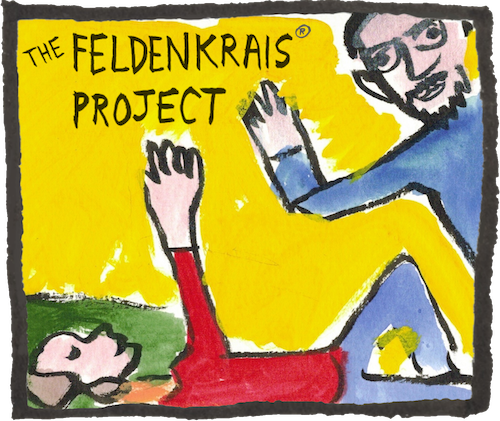Difficulty: Average Challenge
63m
Differentiation of Pelvic Movements by Means of an Imaginary Clock (Patrons)
Lying on the back, mostly knees bent, feet standing, using the image of a clock painted on the back of the pelvis as a guide for building awareness and refining control of the pelvis, and relating it to movements of the head.
60m
Coordination of the Flexor Muscles and of the Extensors (Patrons)
Lying on the back, knees bent, one or both feet standing, variations on tilting crossed legs and "triangle" arms/shoulders in order to twist and untwist the torso, learning more awareness, control, and coordination of the major flexors (folding muscles) and extensors (arching muscles).
66m
Differentiation of Parts and Functions in Breathing (Patrons)
Various positions, about half back-lying. Paradoxical (“seesaw”) breathing experiments designed to help you differentiate the various mechanisms of breathing, and to learn a fuller, more adaptable use of the diaphragm and ALL the ribs and surfaces of the torso.
57m
Folding, Foundation, and Length (Patrons)
Lying on the back, holding the head and knees in different combinations, improving the forward folding of the body through building awareness of the use of the ground (foundation) and aspects of lengthening. Relating the ankles, lower back, and head.
60m
Advanced Twisting Part 1
Back-lying, tilting the crossed legs to organize the flexors and extensors, and eventually using the tilted crossed legs as a constraint to help learn more suppleness of the spine, chest, shoulders, and neck.
59m
Spine Like a Chain, with a Bias
Lying on the back, knees bent. This lesson explores the basic human function of the legs pushing the pelvis forward into the world. It creates opportunities to better sense and articulate the spine and ribs, and organize the flexor and extensor muscles, all within the frame of discovering and using your natural primary spinal bias.
64m
Bending Sideways
Framed with standing explorations of shifting weight, this back-lying lesson explores important and often underrepresented functions (in our self-image of movement) of bending sideways, and connects them to improving balance, and our use of the hips, spine, chest, neck, head, and functions of the legs and feet.
63m
The Periscope
Side-lying, using a reference movement of the arm standing like a periscope. This lesson softens, mobilizes, and integrates the use of the chest and shoulders.
67m
The Anti-Gravity Lesson
Back-lying, often knees bent. Some modified side-lying and brief front-lying. We can’t beat gravity, so let’s get organized to oppose it effortlessly with bones instead of muscles. Pushing and pulling movements from the feet, moving you up and down your mat, are throughly explored, as the horizontal floor substitutes for the plumb line of gravity.
60m
Breathing from Head to Heels
Various positions, about half back-lying. Experiments with the breath mechanism, learning how it relates to the head, spine, and pelvis, and integrates into the length of the heels for standing. Uses paradoxical breathing and "see-saw" breath games.
